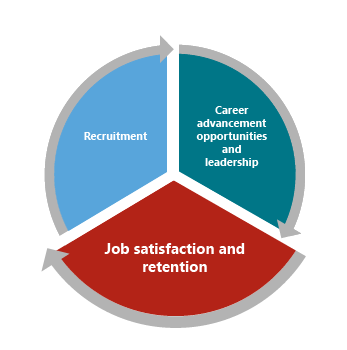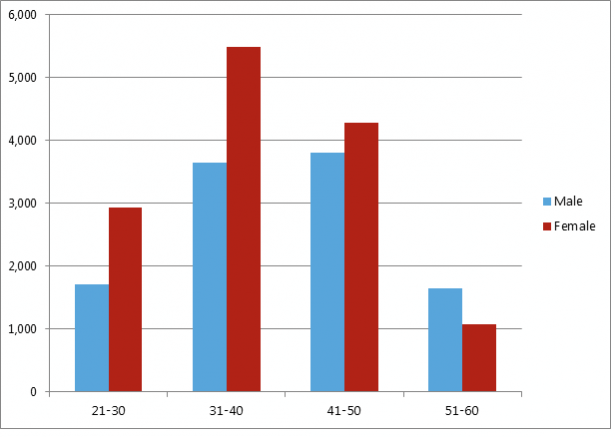
Gender discrimination over the course of health professional faculty members’ careers may affect their job satisfaction and retention. These forms of discrimination impact faculty’s self-confidence and career satisfaction, which can in turn contribute to faculty attrition rates and affect the quality of education being provided at health professional institutions (George 2007). In the Democratic Republic of the Congo, 30% of the faculty at one nursing school stated that they taught because they had no other choice; 17% of both male and female faculty had resigned in the two years prior to the study (Bailey, Kamanzi, and Deussom 2012).
Caregiver responsibilities discrimination
Reports show lower rates of career satisfaction among female medical faculty with children than among male medical faculty with children (US: Reed and Buddeberg-Fischer 2001; similar findings in Reichenbach and Brown 2004).
“None of us really expects things to get better because we are caught in a double bind. If we bring up the issues, the men take it as a [personal] criticism…. If we don’t bring it up, it will never change.” —US university faculty member (Reed and Buddeberg-Fischer 2001)
On the other hand, it could be speculated that gender stereotyping of men as “breadwinners” may compel male faculty to remain teaching for longer periods. Male faculty who may prefer to retire may not be able to due to their perceived economic responsibilities to their families.
Sexual harassment
Faculty also face disadvantages as a result of sexual harassment, with some Nigerian female academic staff, for example, reporting that their refusal of university officials’ sexual advances led to discrimination in promotion and other benefits (Bakari and Leach 2009).
Suggested data analyses
Sex- and age-disaggregated analyses of faculty can help you to observe employment trends. While the authors of this study were not able to locate health professional faculty data of this magnitude, an examination of the Cameroon public health sector personnel by age and sex may illustrate how the careers of men and women differ. Fewer than 8% of all female health workers are over 50 years old, whereas about 15% of all male health workers are over 50 (Tandi et al. 2015). This can be interpreted to mean that female health workers have shorter careers than male health workers; studies should be undertaken at health professional schools to see if the same is true for female health professional faculty.
Public Sector Health Personnel by Age and Sex in Cameroon, 2011 (N = 24,581)

Source: Tandi et al. 2015
Ask Yourself:
|


